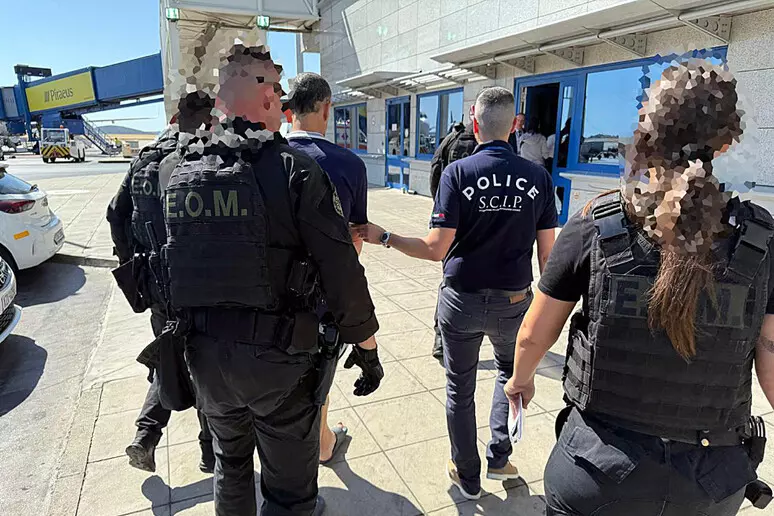Francis Kaufmann is back in Italy, touching down in Rome just after noon aboard a military flight from Greece. The 46-year-old American, accused of murdering his partner Anastasia Trofimova and their infant daughter Andromeda, had fled the country in early June, days after the two were found dead in the wooded outskirts of Villa Pamphilj. The return of the man suspected of one of the most haunting double homicides in recent memory marks a turning point in an investigation that has grown more damning by the day.
Upon setting foot back on Italian soil, the man immediately resumed making accusations against law enforcement, claiming he had been beaten in Greece, during the flight, and again upon arrival in Rome. “I’m pressing charges against all of them,” he shouted, in what investigators have described as yet another display of hostility and manipulation.
Shortly afterward, he complained of physical pain and was taken to Policlinico Tor Vergata for medical evaluation, ahead of his scheduled transfer to prison. He is expected to be held in a monitored section of the medical ward at Rome’s Rebibbia prison, a precaution prompted by his violent and destructive behavior while in custody in Greece, where he allegedly damaged his cell and threatened prison staff. Italian authorities consider the risk of further outbursts to be significant.
Within the next few days, he is expected to appear before a preliminary investigations judge, who will schedule a formal hearing to record his version of events—a pivotal step in a case that continues to grow more damning with each new piece of evidence.
Meanwhile, forensic developments have added a new layer of gravity to the case. Investigators have identified biological traces—saliva and blood—on the black plastic sheet used to conceal Trofimova’s body. The mixed DNA profile points to a familial connection to the child and a partial match to an adult male consistent with Kaufmann’s genetic markers. It’s a finding that doesn’t just place him near the scene, but at the center of it.
In the coming days, Kaufmann will be formally identified, undergo DNA testing, and be served with the Italian arrest warrant on charges of double homicide and concealment of a corpse. A preliminary hearing is expected soon, though as of now, he has not retained legal counsel. In a remote appearance from Greece last week, he declared himself innocent and refused to answer further questions.
Kaufmann had arrived in Rome in late March with Trofimova and their daughter. They moved quietly, living on the margins of the city—sleeping in parks, washing in fountains, trying not to be noticed. Sometime at the start of June, their silence became permanent. The bodies were discovered on June 7th, hidden beneath layers of debris, where investigators believe they had been dumped days prior. Since then, Kaufmann vanished, resurfaced on a Greek island, arrested, and held in pre-extradition custody.
With his return to Italy and the forensic evidence mounting, the case enters a more decisive phase. The questions that remain—about motive, timeline, and intent—will now face their moment in court. And Kaufmann, no longer a fugitive, will have to face them too.











